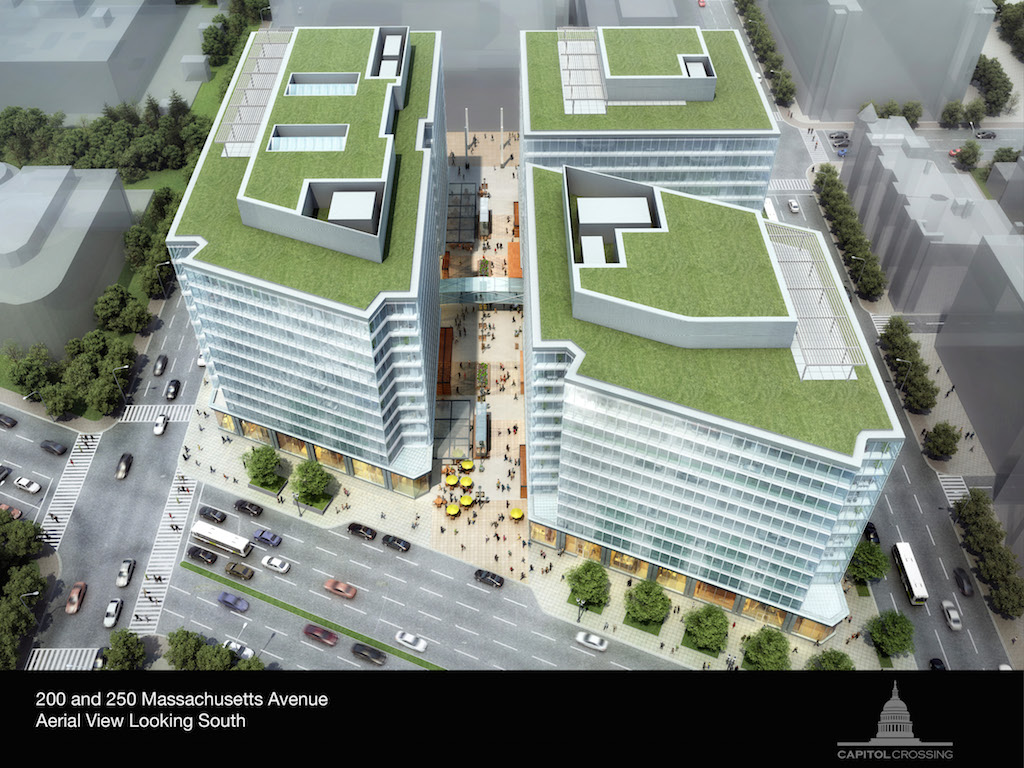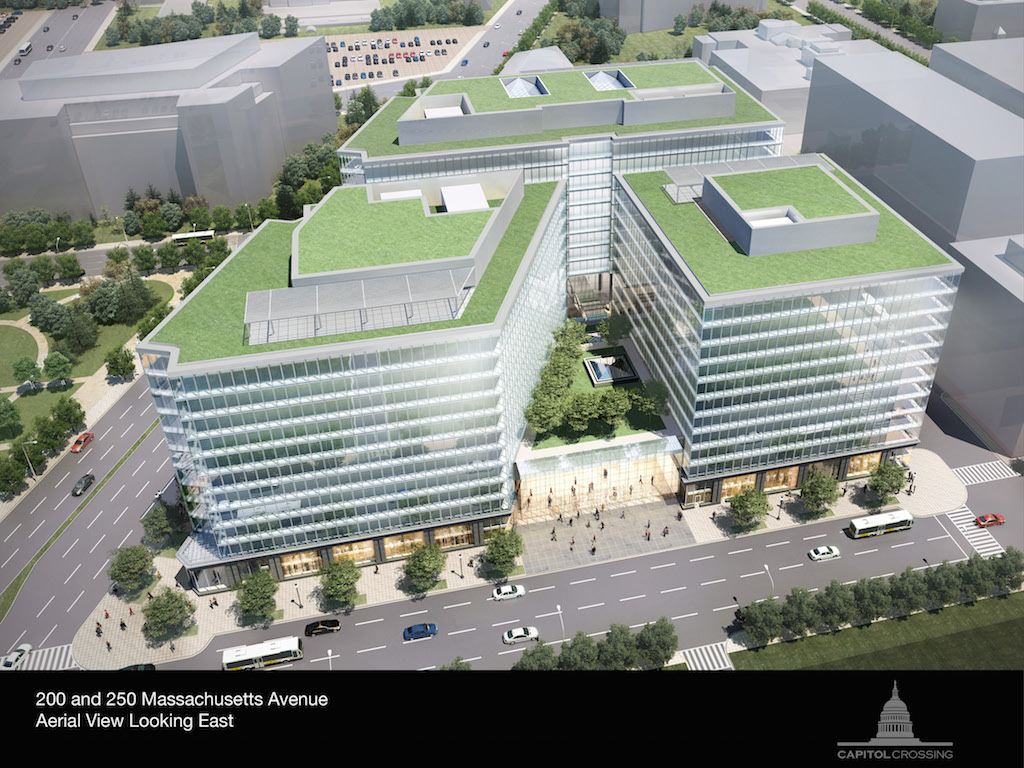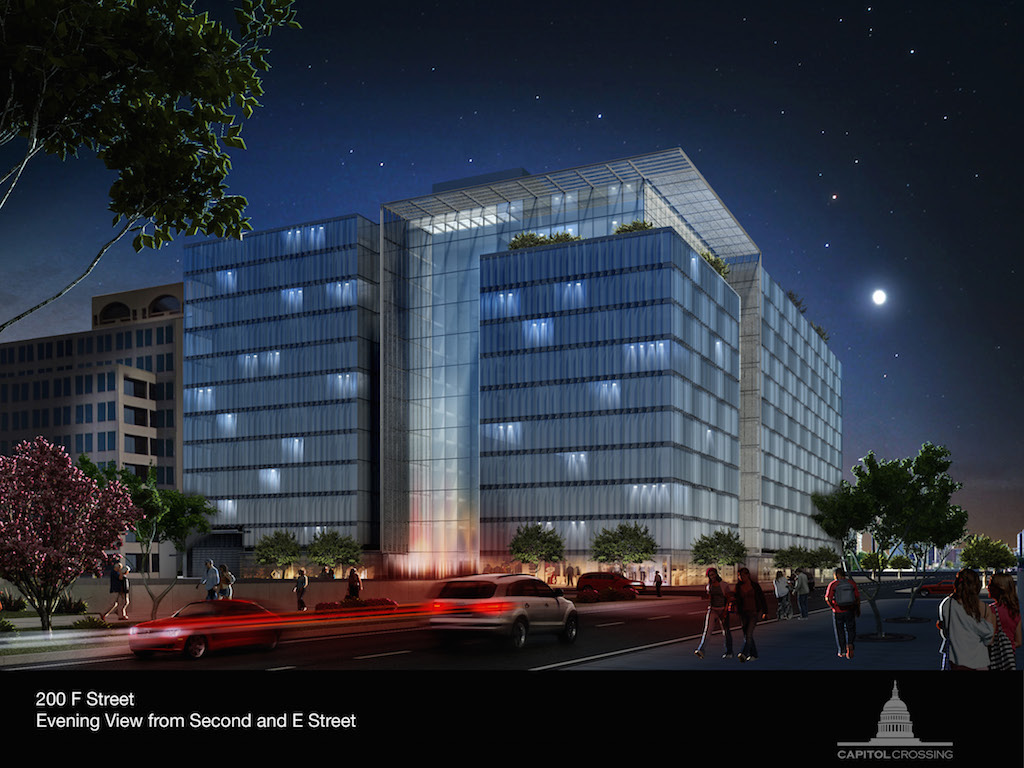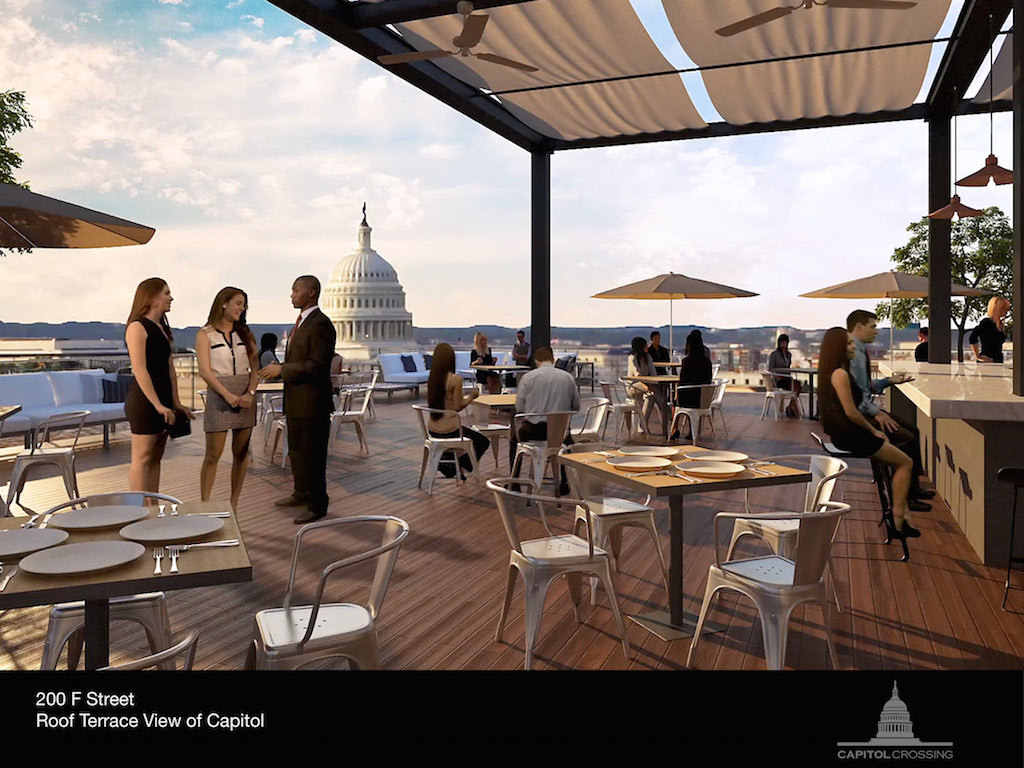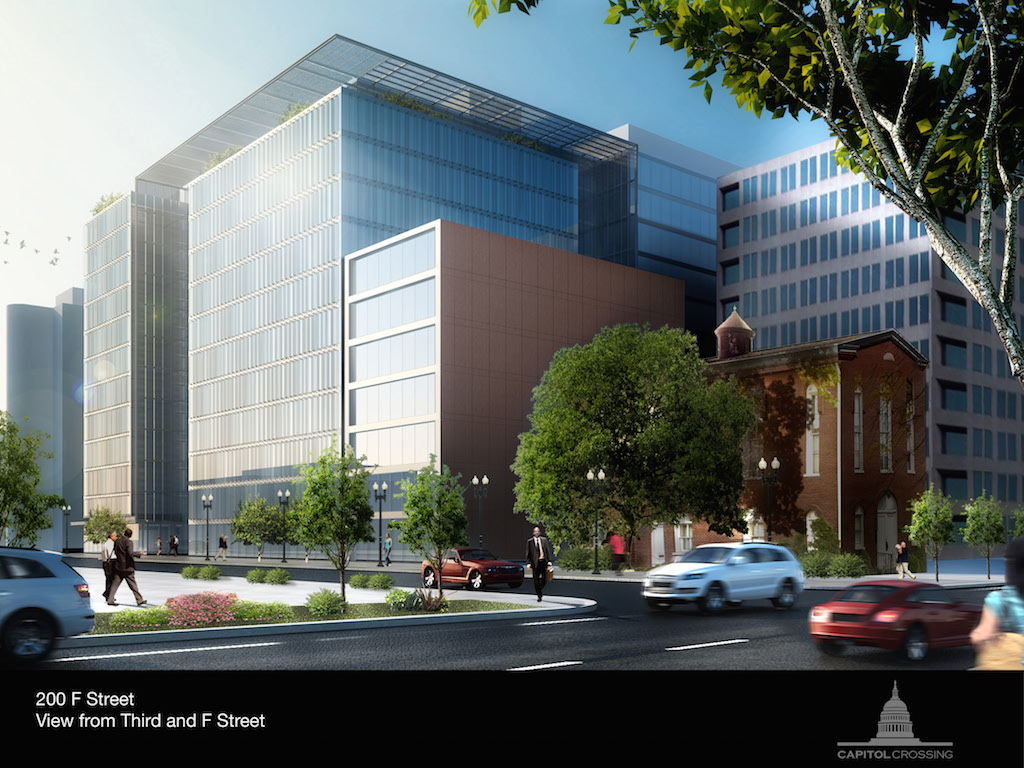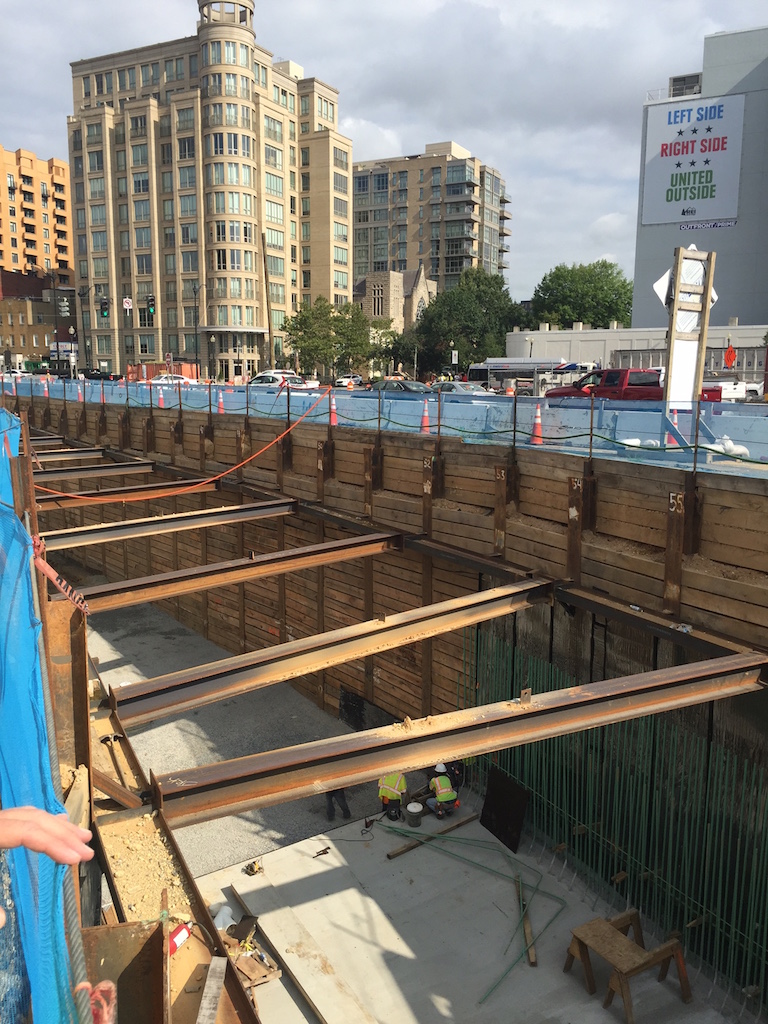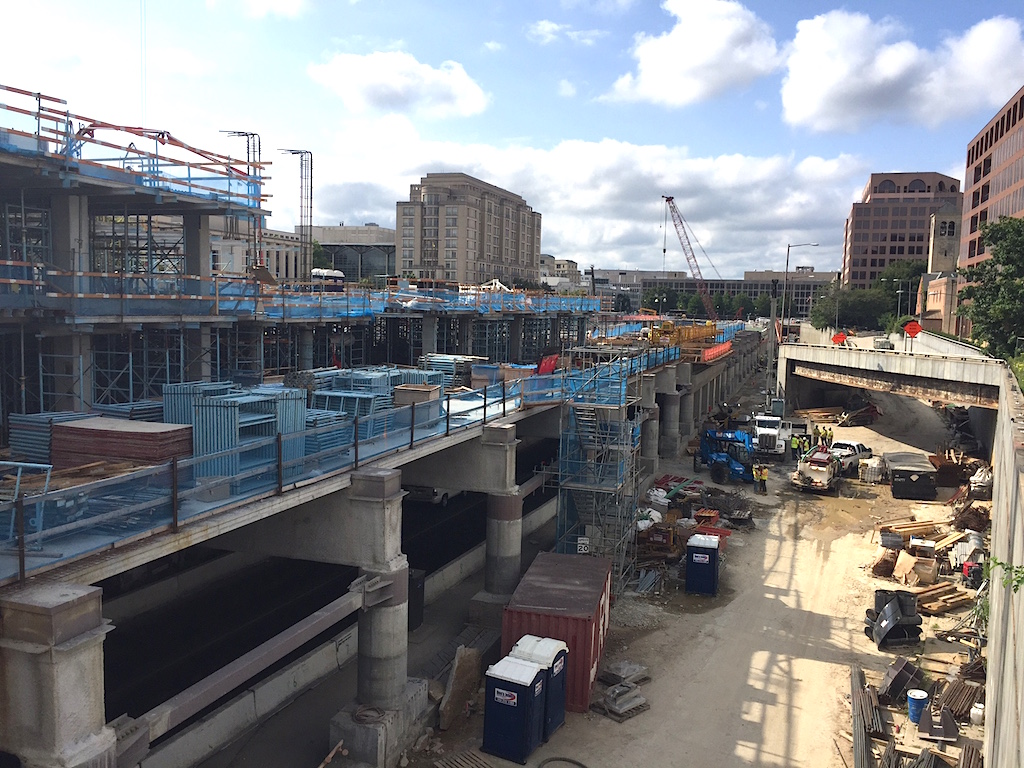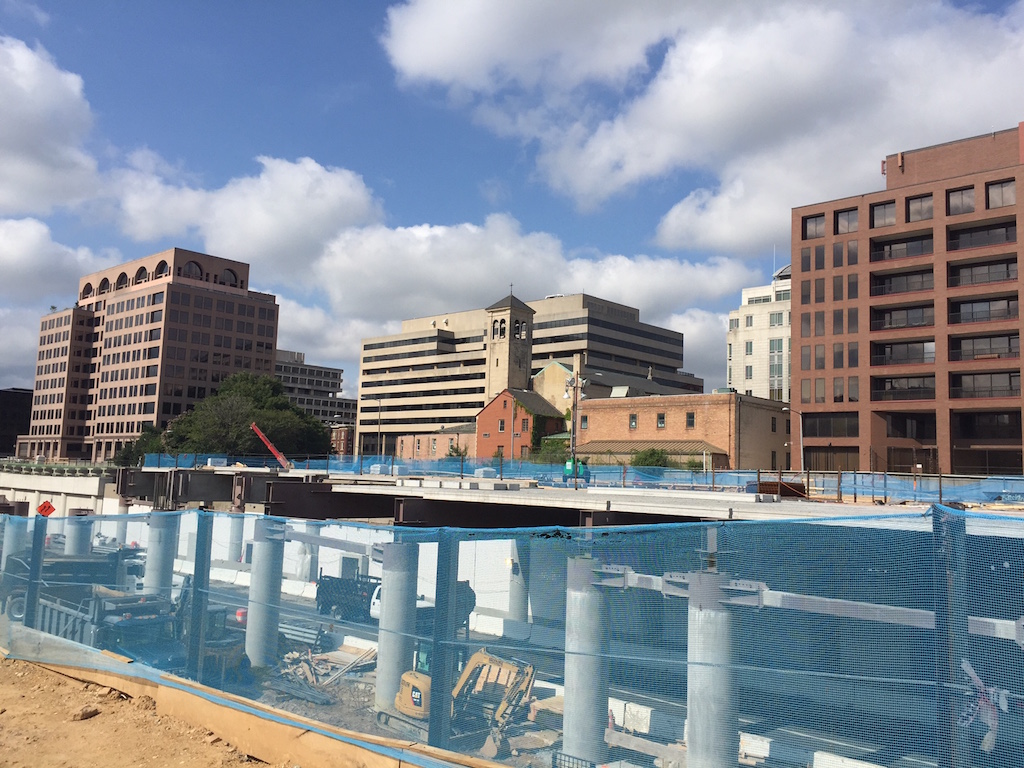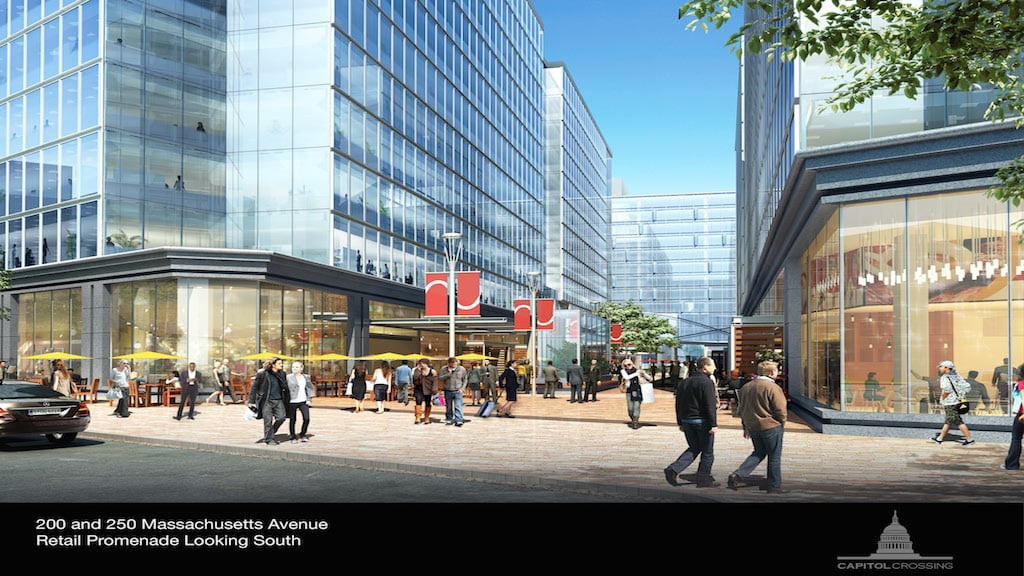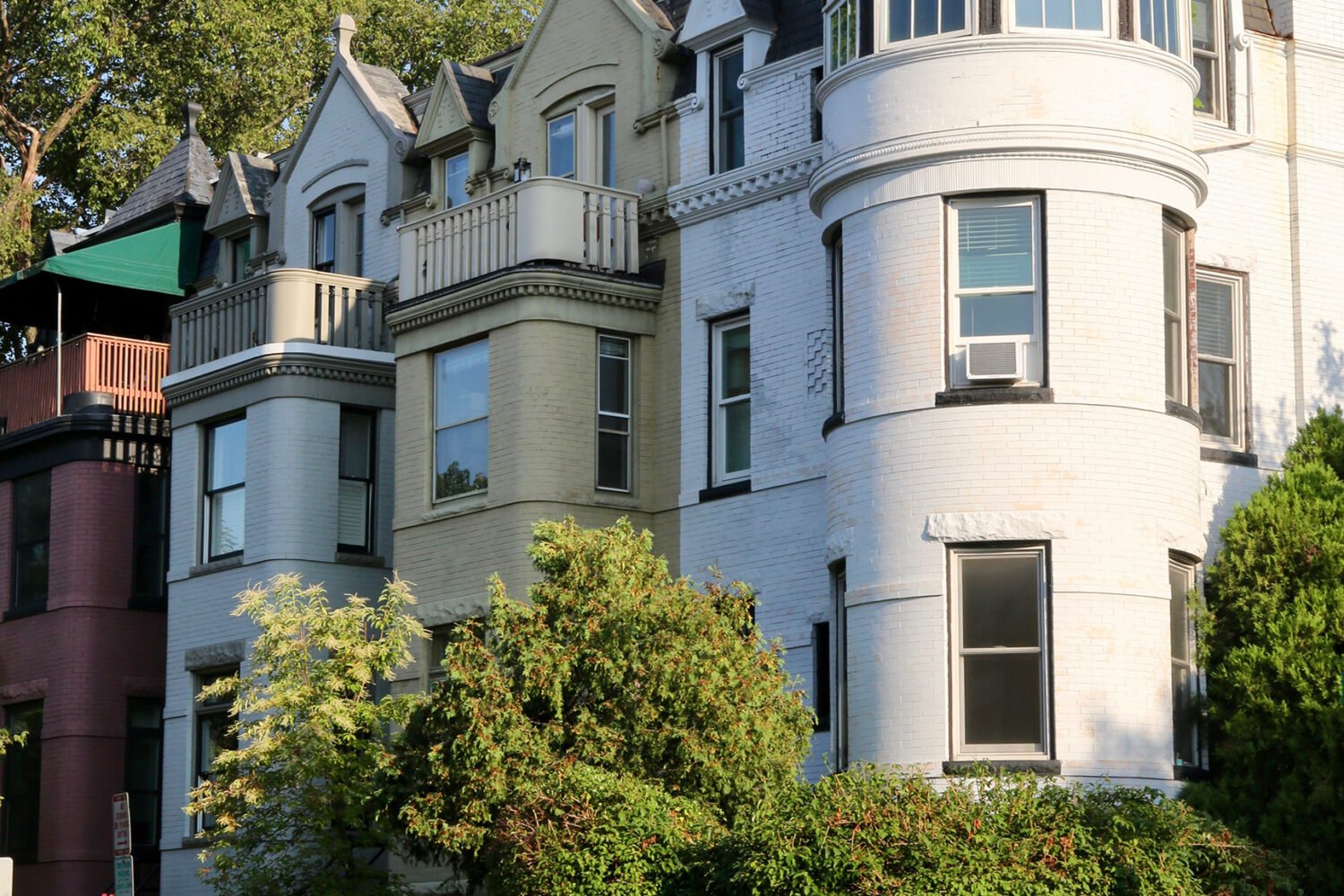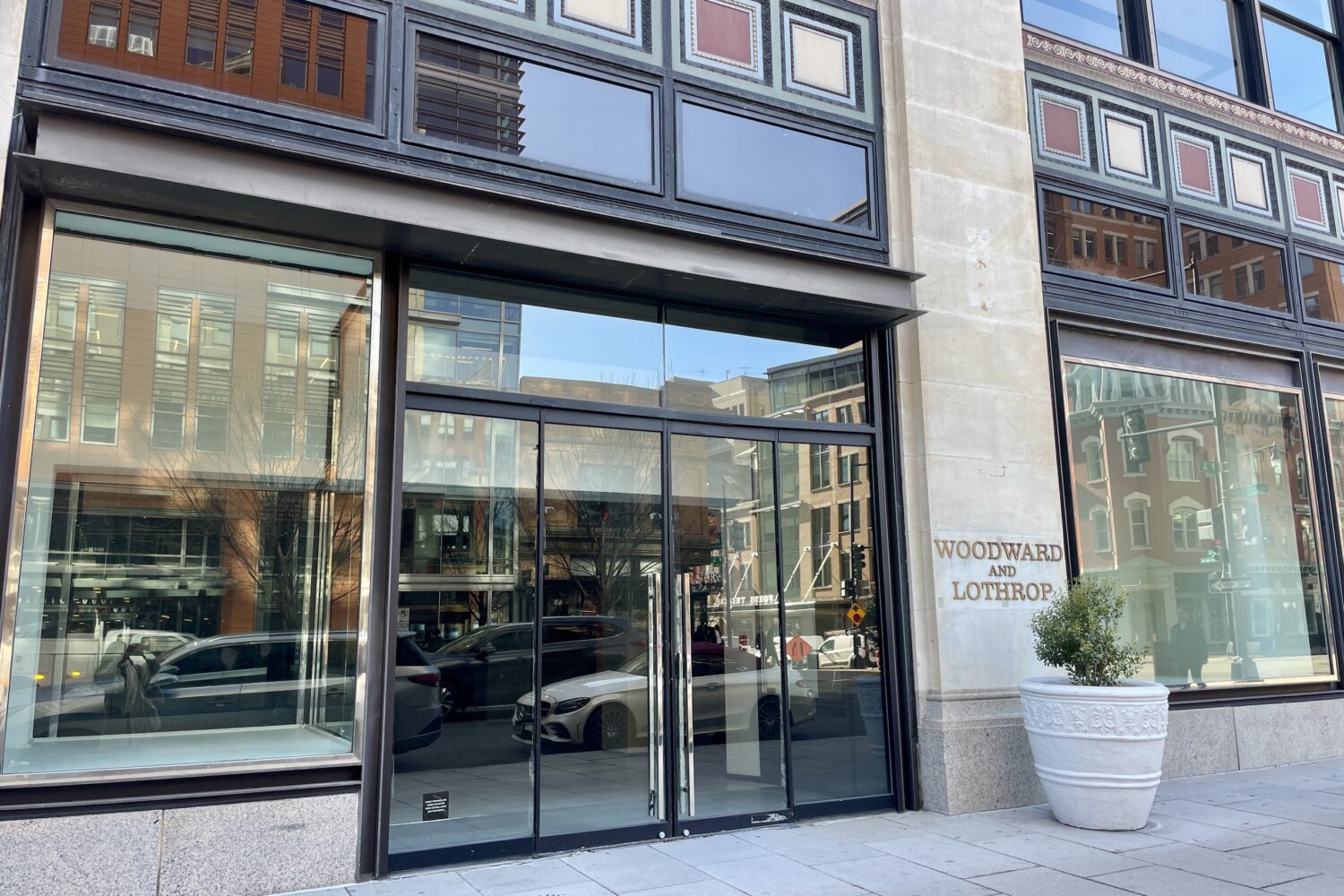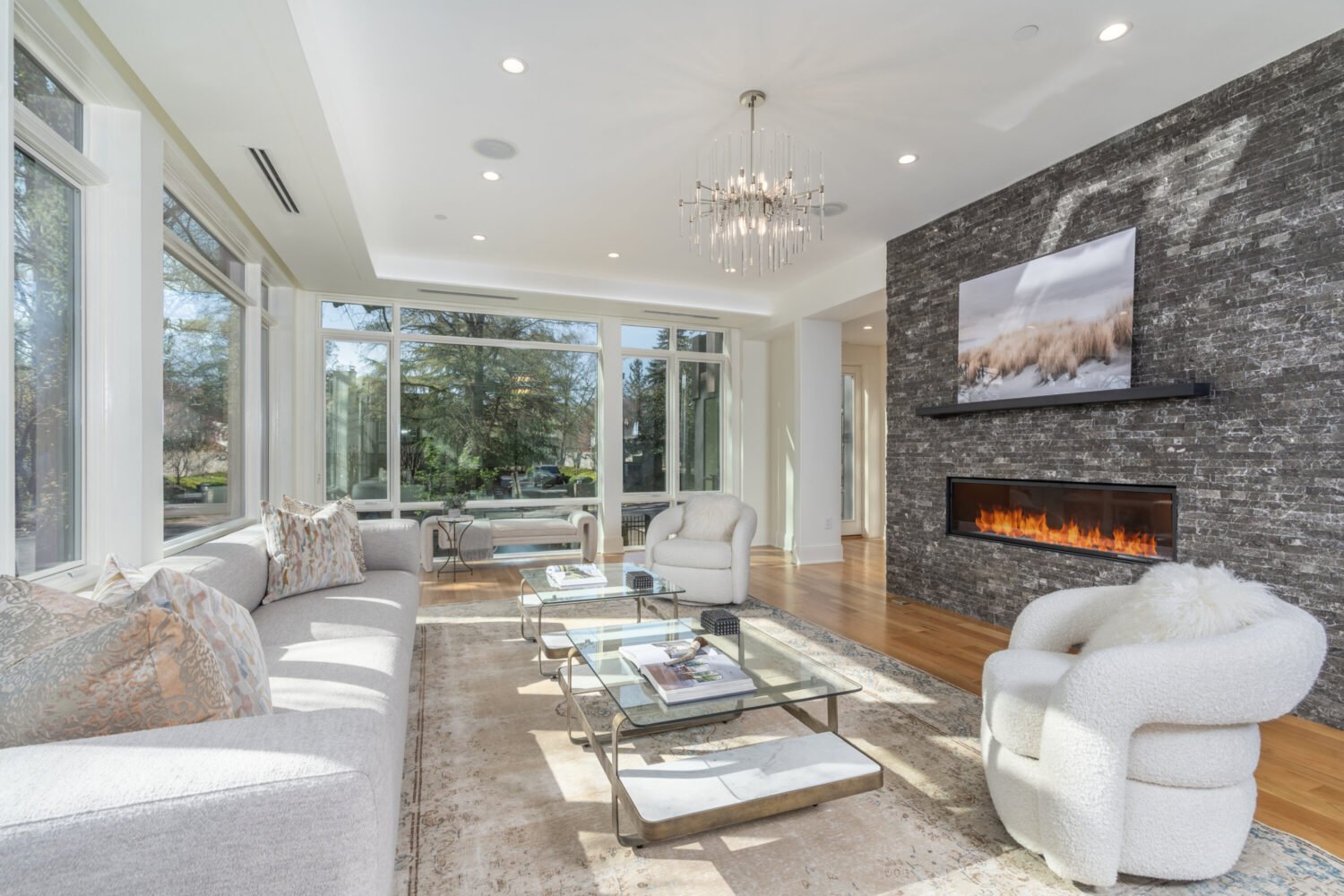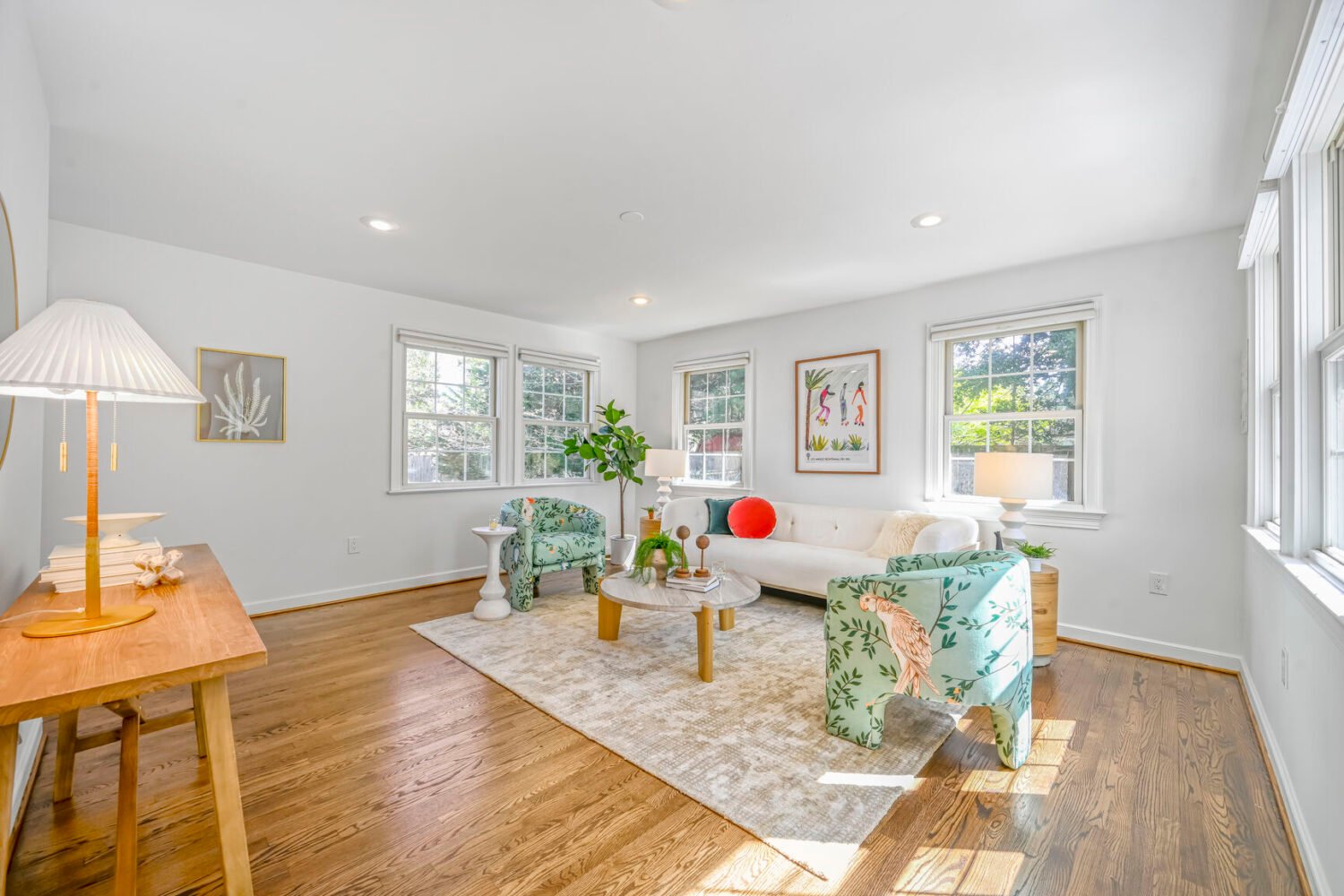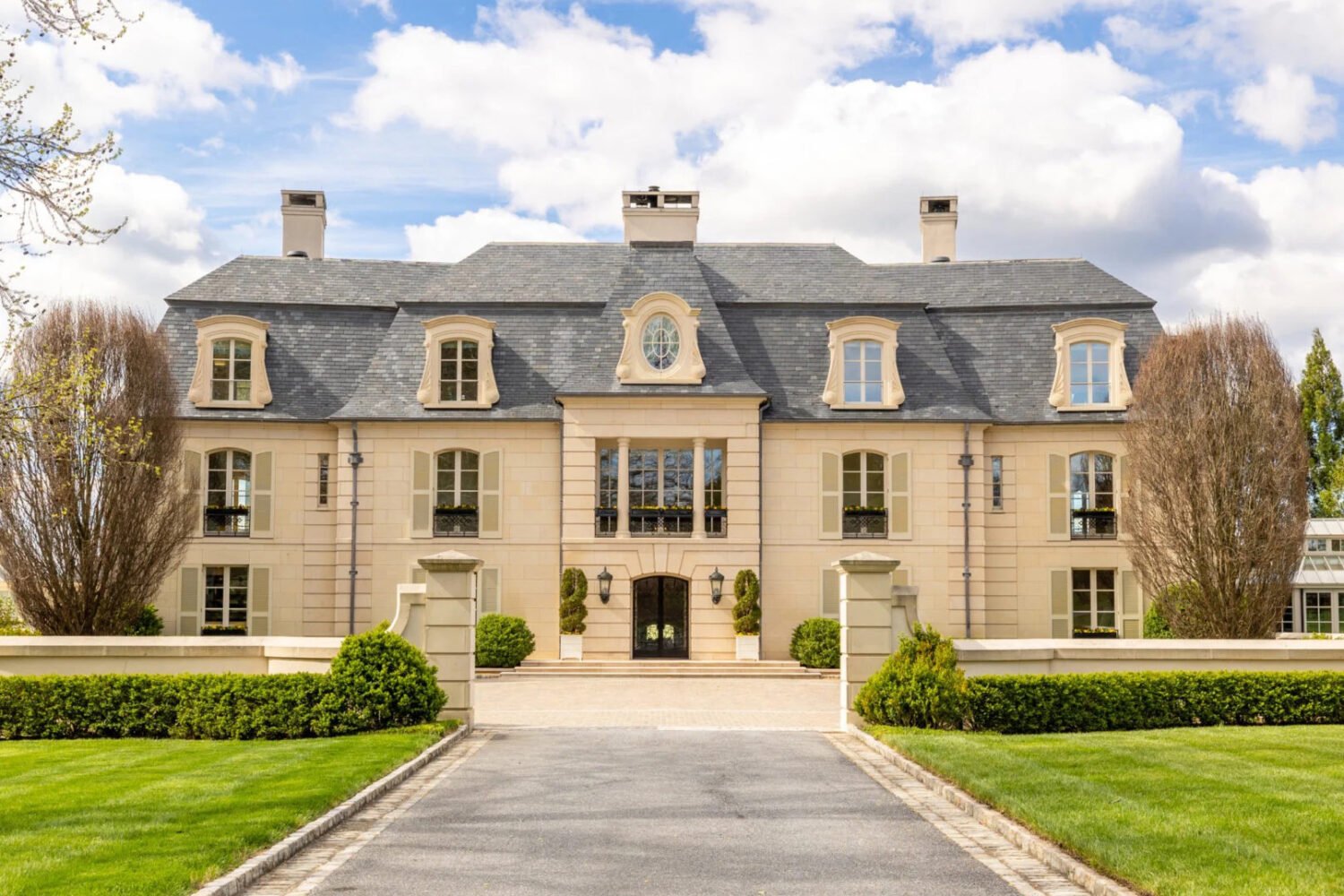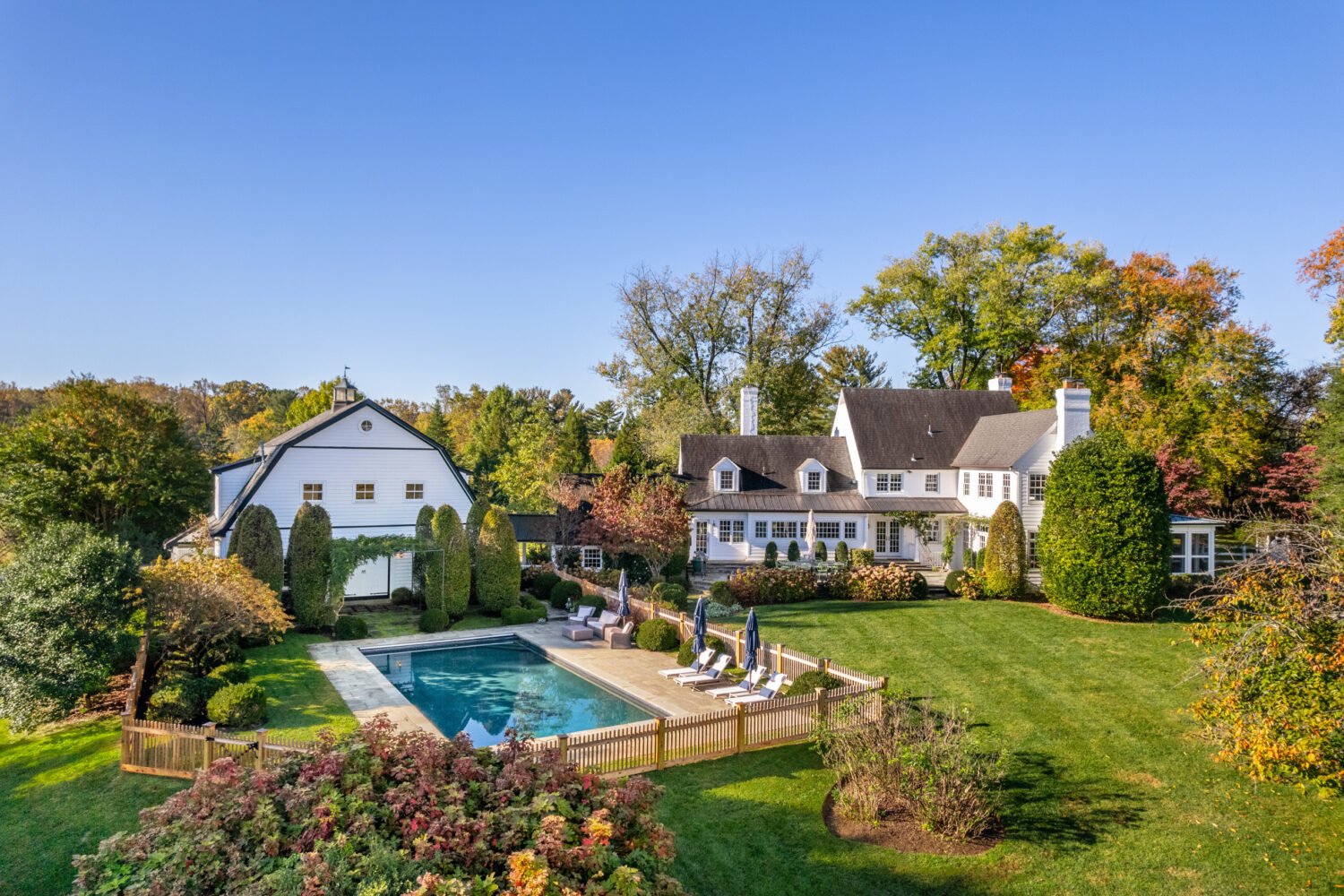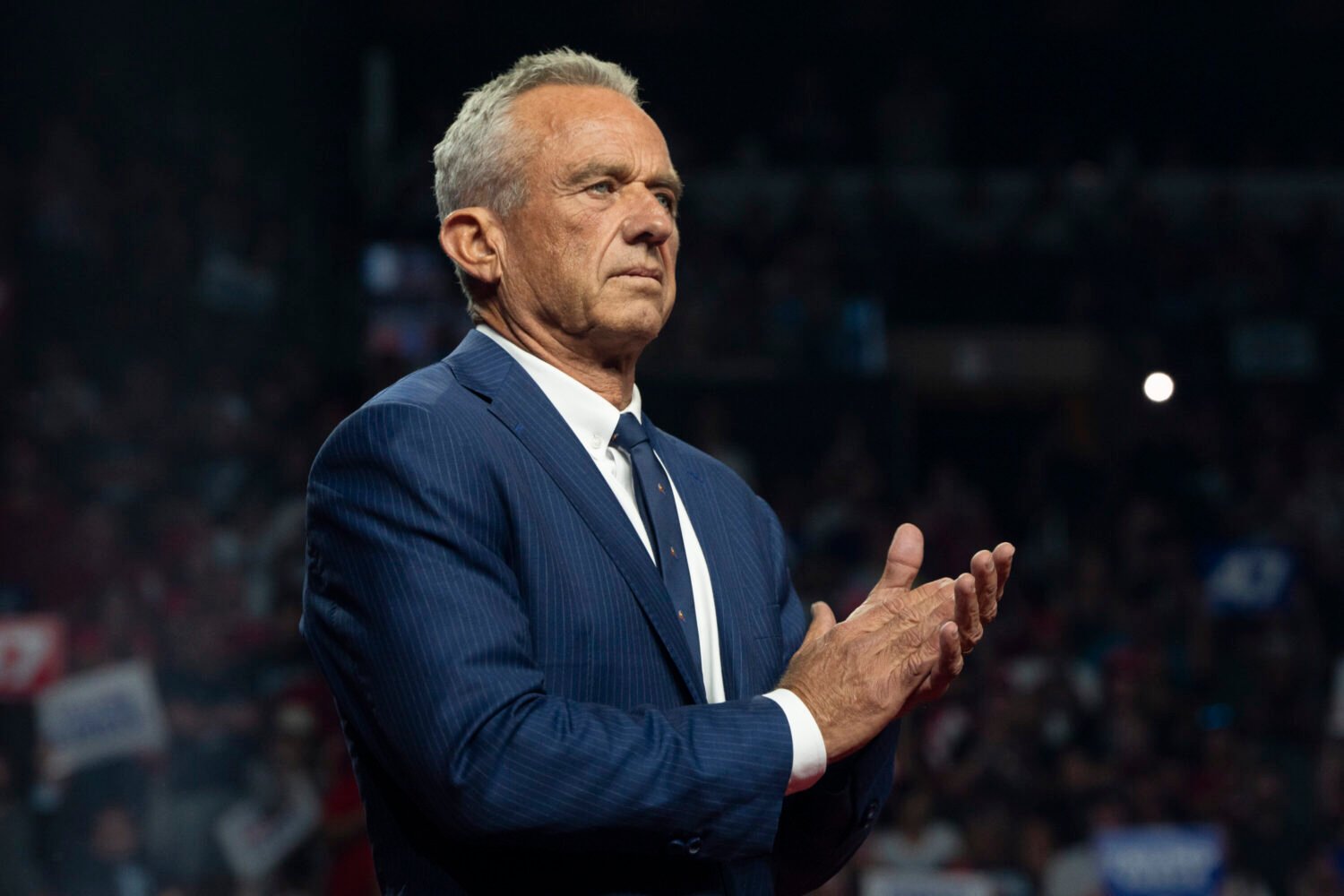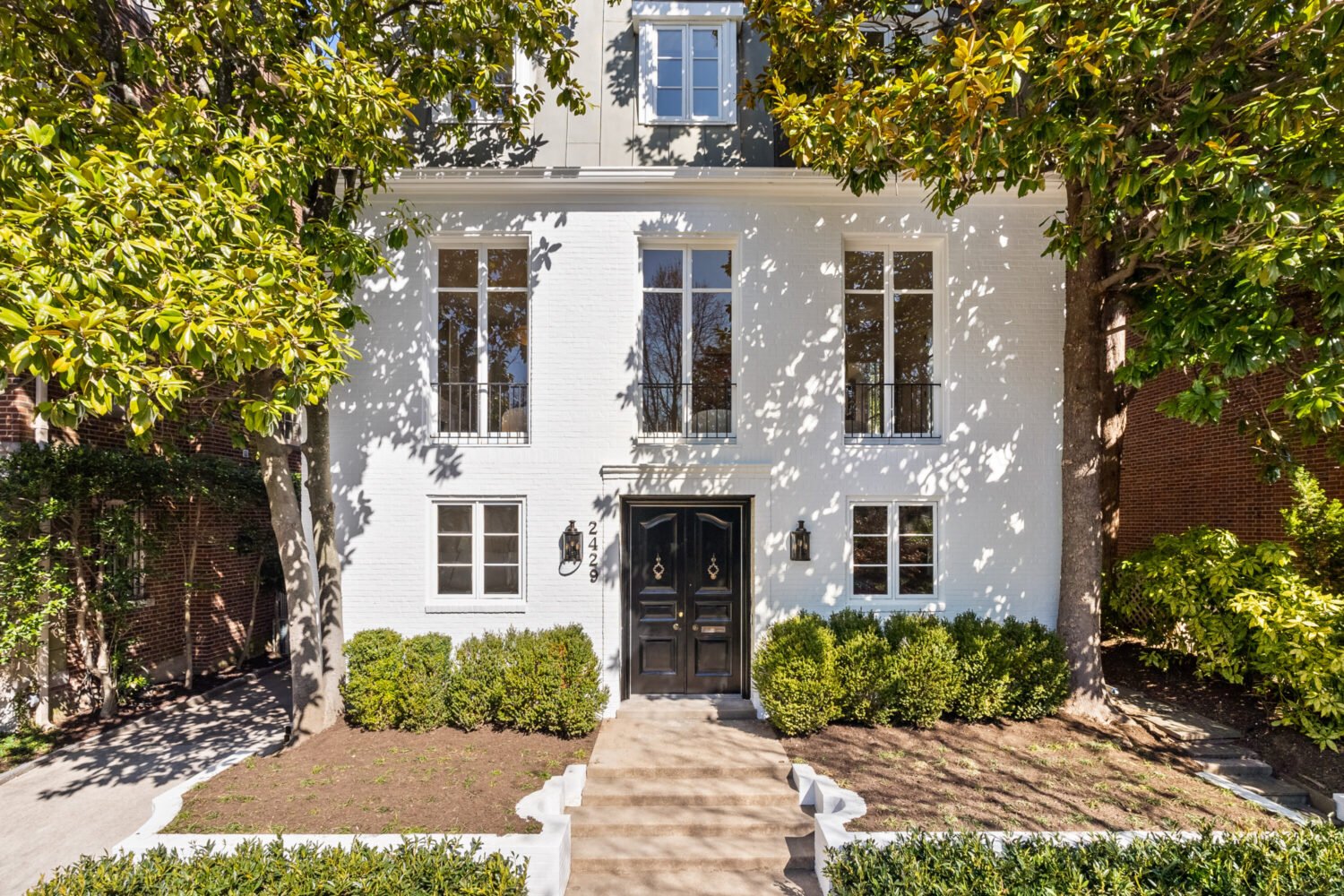DC is getting three brand new blocks. That would be a big deal most places, but it’s especially significant in a city where vertical growth is capped by a federal height limit, where real estate is increasingly expensive, and whose population is climbing by almost 1,000 residents a month. Capitol Crossing, the $1.3 billion project that broke ground in 2015, will mend the divide created by I-395 between Capitol Hill to the east and downtown DC to the west, with a massive “deck”—i.e. a new section of city—constructed over the freeway.
The first of five planned buildings is now rising atop the finished portion of that deck at 200 Massachusetts Ave., NW. It’s scheduled to be complete in 2018, and will include 400,000 square feet of office space, and nearly 25,000 square feet of retail. Robert Braunohler, of Capitol Crossing’s developer Property Group Partners, has bad news for anyone still hoping DC’s first Eataly will take over the retail portion. He says a tenant has signed a letter of intent to move in—and it is not Eataly. He declined to name the tenant, but says it offers a restaurant/market concept similar to Eataly’s.
Even so, Braunohler says negotiations with Eataly are ongoing, and he doesn’t rule out Eataly signing on at some point. (The next building, 250 Massachusetts Ave., is slated to be done in 2019.)
The development’s residential component is also in flux. Housing was never going to be a major component of Capitol Crossing—the sole residential building planned for the site is relatively small, with 150 units, at least 50 of which will be affordable. The reason for such a modest amount, says Braunohler, is straight-forward: It’s incredibly expensive to engineer and construct a new section of city over a freeway, and land value is higher for retail/office use than it is for residential.
Georgetown Law—which sits up against Capitol Crossing—had an exclusive right, until last month, to expand its campus onto that section of the site and use it for student housing. Though Georgetown’s time is up, and the university has not committed to the land, Braunohler says building apartments or condos for the public there remains “up in the air.” Even if the building winds up as student housing, though, Braunohler says it will include the affordable units.
A lot of other things, though, are definitely getting built, including eco-friendly infrastructure that will supply the entirety of the site’s 2.2 million square feet. Underground water cisterns will capture and treat over 90 percent of storm runoff, then use the water for the buildings’ cooling towers. “Eco chimneys” will send exhaust from the 1,100-car parking garage through a filtration system made of living plant material, cleaning it before it enters the atmosphere. On the surface, the system will look like a vertical garden enclosed in glass, rising above the sidewalk. These and other measures will make Capitol Crossing the city’s first “eco district.”
The whole project is expected to be done by 2022, creating 8,000 to 10,000 permanent jobs, and generating $40 million in annual property taxes.
